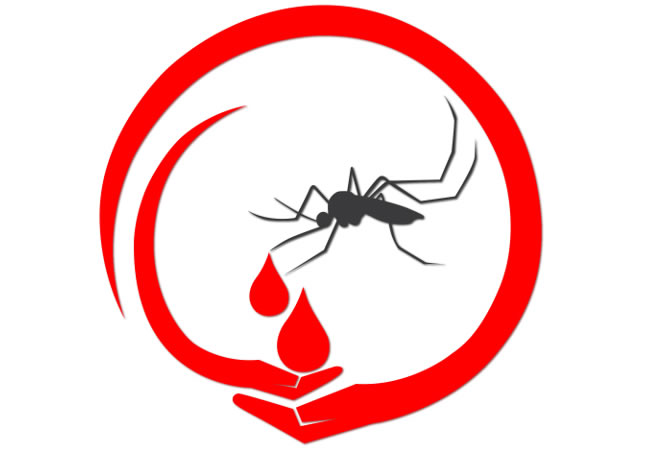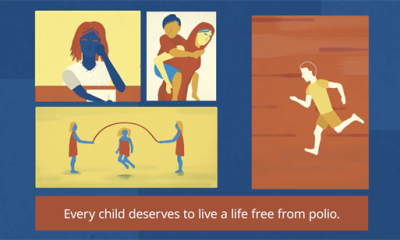Health
Malaria eradication efforts ought to collect momentum

The current empanelling by the President, Main Common Muhammadu Buhari (retd), of the Nigeria Finish Malaria Council as a part of efforts to eradicate malaria is a welcome transfer to rejuvenate a flagging nationwide well being programme. Not like earlier initiatives, nevertheless, this could not finish with simply an inauguration. It ought to make an enduring affect on the nation’s well being care supply system. As Buhari famous, malaria would drain N2 trillion from the Nigerian financial system by 2030 if nothing drastic is finished. Malaria is taking a heavy toll on the nation; subsequently, the federal and state governments must escalate measures to include, and finally eradicate the scourge.
A 16-member group, the EMC is according to the African Union Meeting Declaration mandating the institution of EMCs continent-wide. It’s anticipated to mobilise further funding and assist scale back malaria prevalence, prices, and deaths in eight years in Nigeria, thereby saving the nation trillions of naira.
The illness is endemic in Nigeria the place it accounts for the very best variety of malaria circumstances and deaths worldwide, based on the World Malaria Report. An estimated 76 p.c of the inhabitants is in danger in excessive inhabitants areas, stated USAID and the malaria burden will price the nation N687 billion this yr, Buhari added. It kills adults and kids alike. The World Well being Organisation stated insecurity, poor implementation of remedial measures and poverty are worsening the scenario. Due to this fact, concrete, efficient motion should be taken now.
Malaria is attributable to the parasite, Plasmodium falciparum, transmitted year-round by the chew of the Anopheles mosquito as the foremost vector. The incubation interval between the mosquito chew and onset of malaria fever is 2 weeks. The illness impacts the nation’s financial productiveness, leading to financial lack of roughly N132 billion yearly in remedy prices, prevention, and different oblique prices, based on the Malaria Journal.
It’s a main public well being downside in 97 nations and territories within the tropics and subtropics. Globally, about 214 million circumstances of malaria happen yearly, placing 3.2 billion folks susceptible to an infection. Roughly 438,000 deaths had been attributed to malaria in 2015, significantly in sub-Saharan Africa, the place an estimated 90 per cent of all malaria deaths happen.
Nigeria just isn’t successful the warfare in opposition to malaria. It nonetheless suffers the very best malaria burden worldwide, with about 51 million circumstances and 217,000 deaths reported yearly. That is virtually 30 per cent of the whole malaria burden in Africa. Research present that 97 per cent of the whole inhabitants is susceptible to an infection.
Mapping out efficient cures requires a full understanding of things that contribute to its prevalence. The Borgen Undertaking, an NGO, cites the tropical local weather which is beneficial to the copy and lifespan of the vectors. One report stated the climate is answerable for 6.0 p.c of circumstances in malaria-endemic nations. Different components embody overcrowded residing situations that support transmission, poor sanitary situations, and habits; 60 p.c of Nigerians lack entry to protected water and protected sanitary situations. Lack of entry to well being care companies by 83 p.c of the inhabitants, provides Borgen, aggravates the scenario.
Underneath the UN Millennium Growth Objectives, the World Well being Meeting set a goal of decreasing malaria circumstances and deaths by 75 per cent between 2005 and 2015. Therefore, over the previous decade, there was drastically renewed curiosity in analysis and improvements in diagnostic strategies, medicine and vaccines, and the event of management measures.
ButNigeria has been slothful. Malaria, based on BioMed Central, a web-based journal, accounts for 60 per cent of out-patient visits to hospitals, 11 per cent of maternal mortality and 30 per cent of kid mortality, particularly amongst kids lower than 5 years outdated.
The federal government ought to revive and speed up current plans. The Nationwide Malaria Management Programme that in 2008 got down to scale back 50 per cent of the malaria burden by 2013 by reaching 80 per cent protection in offering long-lasting impregnated (mosquito) nets has faltered.
As of 2008, solely 20 per cent of homes in focused areas obtained indoor residual spraying and remedy with two doses of intermittent preventative remedy for all pregnant ladies visiting antenatal care clinics. These measures raised the proportion of households with a minimum of one LLIN to over 70 per cent by 2010, in comparison with solely 5.0 per cent in 2008.
The federal and state governments ought to revamp, fund, and implement eradication programmes such because the Roll-Again Malaria marketing campaign. In collaboration with worldwide companions, large provision of insecticide-treated nets, funding in sanitation and fundamental well being companies and remedy needs to be stepped up.
Home pharmaceutical companies needs to be given incentives to make sure inexpensive costs for anti-malaria remedy. The Nigerian authorities ought to put money into ongoing world efforts and trials for a vaccine and fund native analysis into native cures.
Concerted motion works. The Inhabitants Reference Bureau, a non-profit, reported {that a} public-private partnership initiative noticed by the World Financial institution diminished malaria circumstances in some factories by 80 per cent and hospital admissions by 90 per cent in Kenya. Vietnam’s malaria management programme featured the availability of free insecticide-treated nets, the promotion of indoor spraying with pesticides, and home manufacturing of anti-malaria medicine. Consequently, reported the WHO, malaria circumstances there fell by 60 per cent and deaths from malaria by 97 per cent.
Nigeria can obtain related outcomes with the three tiers of presidency pulling collectively and every implementing eradication programmes. The native governments ought to restore sanitary inspections and year-round spraying of drainages and different breeding grounds of mosquitoes.
Nigerians ought to take duty for his or her well being.
Clearing soiled gutters, reducing overgrown bushes, sleeping below mosquito nets, and taking common easy well being steps would save the nation a lot misery. Authorities in any respect ranges should revive the NMCP. Nets needs to be made accessible and accessible for residents in rural areas without spending a dime and at subsidised charge within the cities.
Chaired by Africa’s richest man, Aliko Dangote, with another tycoons on board, it’s anticipated that the council members will leverage their wealth and affect to lift funds and mobilise different philanthropists from all over the world to enhance authorities’s spending. Finally, it’s the doggedness and dedication of the federal and state governments that may decide success in taming malaria. Buhari and the 36 state governors ought to commit totally to this noble goal.
Copyright PUNCH
All rights reserved. This materials, and different digital content material on this web site, might not be reproduced, printed, broadcast, rewritten or redistributed in complete or partially with out prior categorical written permission from PUNCH.
Contact: [email protected]
























